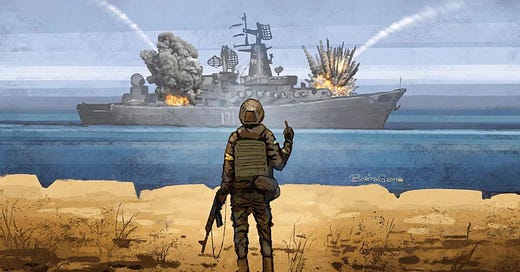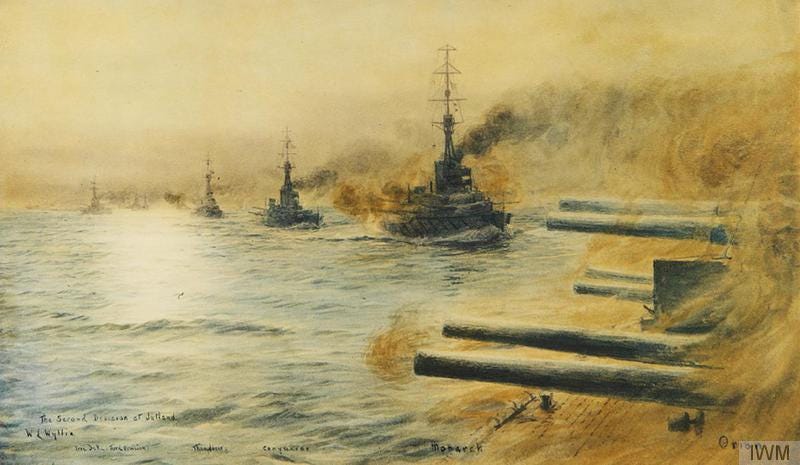Winning a War at Sea Without Warships
Part I, Sea Control and Sea Denial in the World Wars and the Black Sea
Note—this is going to be a two part post which I will finish it later in the week or early next. I started it assuming it would be one post, but the first part became so long that it has to be too. At least no one can complain about a lack of content from this substack ;)
I am going to have some fun with this update, starting by thinking back to the pre-1945 world of seapower (before US naval dominance basically changed the equation) to look at the naval war in the Black Sea from that point of view. Then I plan to look forward to try and understand what we might be seeing, with the Ukrainians having their successes in a naval war without having much in the way of warships. Its especially apt to start this today, as the first of the merchant ships that had docked in Ukraine and been loaded up with grain, the Resilient Africa, has now left port and is heading out to sea. If it, as looks likely, safely transits through the Bosporus, it will mean that Ukraine has defied the Russian grain blockade—which was a key element of Russian strategy and one that almost everyone seemed to think the Russians could enforce in a straightforward manner.
Sea Control and Sea Denial
Its useful to go back to the era of the World Wars when discussing sea power ideas because such concepts were much more in vogue than they haves been for decades (thanks to US naval dominance). The ideas that they discussed before 1945 also have great applicability to what we are seeing in the Black Sea today. In many ways the naval struggle in both world wars, particularly the famous Battles of the Atlantic between Great Britain and Germany, were very similar in intentions/aspirations to that now between Russia and Ukraine. In both wars the United Kingdom, because it had by far the larger and better balanced surface fleet, as well as the best bases to project power into the Atlantic, was set on maintaining what has been termed Sea Control.1
A power in possession of Sea Control aims, not surprisingly, to control the movement of shipping, both military and commercial, on the ocean surface. A power in possession of sea control cant do anything it wants, at any time, on the surface of the ocean, but it has the ability to control the movement of vessels on the sea in selected areas and selected times. In other words, it cant guarantee total security, but it has what might be termed strong episodic control.
You can obviously see why Sea Control was crucial for the UK in the world wars. The British needed, before anything else, to assure that the vast majority of the merchant ships bringing goods and supplies across the Atlantic and into Europe, made it to port safely. If the British ever lost sea control for a considerable period, Britain would basically cease to be an independent power. The country could not produce enough food to feed the population on its own and British industry required a regular supply of raw materials from across the world to keep functioning. This was all well-known to British policy makers, which is why keeping the Royal Navy strong was such a high British priority.
Germany, on the other hand, had only a tiny chance of exercising sea control at the start of World War I, and no chance in World War II. In World War I, the German High Seas Fleet would have had to defeat its larger rival, the Royal Navy’s Grand fleet in pitched battle, basically destroying so much of the British force that the Germans could then patrol the Atlantic to the west of the British Isles. As the Battle of Jutland revealed, even when the Germans did more damage to the British than they received, the Royal Navy remained the dominant force. In World War II, the Germans never had the naval force to even attempt sea control. The Bismarck and the Tirpitz might have received alot of press, but they never represented a serious challenge to British dominance of the seas.
Keep reading with a 7-day free trial
Subscribe to Phillips’s Newsletter to keep reading this post and get 7 days of free access to the full post archives.




